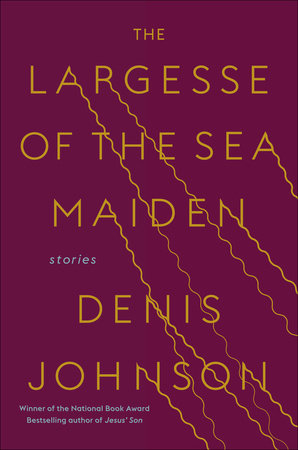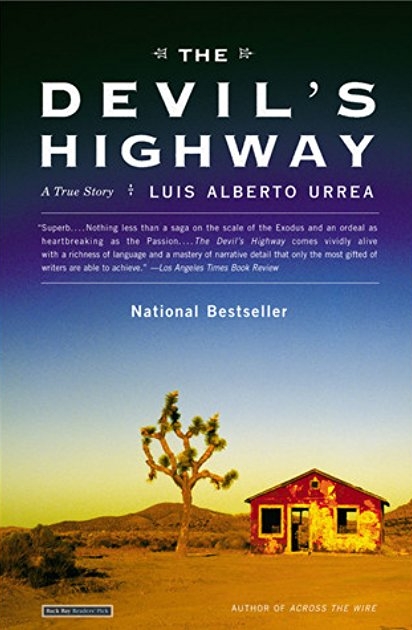Faculty Picks: Johnson, Stegner, Welty
Benjamin Nugent--In “Strangler Bob,” the short story by Denis Johnson published in this week’s New Yorker, you find Johnson trotting out his courtly mode. It’s kind of Blanche DuBois cum Bertie Wooster, but he metes it out in such small doses that it never feels like camp. He uses it in “Dirty Wedding,” when the narrator laments, “These days had reduced us to the Rebel Motel.” Also in “Two Men,” when the narrator bemoans the break-up of his gang: “Later on one of them got hurt when we were burglarizing a pharmacy, and the other two of us dropped him bleeding at the back entrance of the hospital and he was arrested and all the bonds were dissolved.”
In “Strangler Bob,” which takes place in jail, the narrator, Dink, says of a fellow inmate: “This time he’d been arrested for giving a man some well-deserved punishment in the dining area of the Howard Johnson’s, which he described as the wrong kind of restaurant for that.” Dink deems a prisoner who shares a low-grade hallucinogen “most generous.”
Joining Dink in Johnson County’s facility is Dundun, who also features in Johnson’s older story “Dundun.” Dink describes him thus: “Dundun’s mental space, customarily empty, had been invaded by an animal spirit.” Imagine if Johnson had gotten self-conscious and replaced the elegant “customarily” with plain old “usually.” The paragraph would have been mauled.
It’s a classic Mark Twain move, to write of coarse individuals as if they rated great tact. But see also Marilynne Robinson’s Housekeeping, where the narrator says, “The people of Fingerbone and its environs were very much given to murder.”
Richard Adams Carey--"In this not-quite-quiet darkness, while the diesel breaks its heart more and more faintly on the mountain grade, I lie wondering if I am man enough to be a bigger man than my grandfather."
Those are the wrenching last words of Wallace Stegner’s 1972 novel Angle of Repose. The narrator is Lyman Ward, an aging historian, divorcee, and wheelchair-bound amputee. His grandfather was Oliver Ward, a brilliant engineer who took his cultivated, Eastern-educated wife Susan from mining town to hardscrabble mining town throughout the West at the end of the 19th century.
Lyman is devoting his retirement to writing the biography of his grandmother, an artist and illustrator, and of her loving, strenuous marriage—a union blighted by tragedy and recrimination in its final decades. Lyman has recriminations himself against his former wife, now abandoned by her lover and extending overtures to him. The novel is chiefly the epic story of Susan Ward, her family, and the frontier, but the present-day (1960s) struggles of her crippled, solitary, angry, but eminently humane grandson play in gorgeous counterpoint to the main plot.
Lyman Ward lives alone in his grandparents’ last home in northern California, and his description of being bathed by the neighbor lady hired to help take care of him is harrowing in its depiction of the indignities of age and disability. But the novel as a whole glows with all the courage, endurance, mercy, and love we can hope to shore against our frailties.
Justin Talyor--I’m living down in Hattiesburg this school year as Writer-in-residence at University of Southern Mississippi, and have taken the appointment as an opportunity to get re-acquainted with Southern literature. I've been revisiting Barry Hannah and William Faulkner, exploring the early novels of Harry Crews and Thomas McGuane, teaching Lydia Peelle's excellent collection Reasons for and Advantages of Breathing in my contemporary lit seminar. But the greatest revelation has been Eudora Welty, who lived and wrote just up the road in Jackson. I did not know her work at all before I got here and have been making my way through her Collected Stories, vacillating between profound shame at how long I managed to stay ignorant of her and profound gratitude for the fact that I get to discover her now, while living in her home state.
I started at the beginning of the Collected, with A Curtain of Green and Other Stories, published in 1941. The Wide Net and Other Stories followed close on its heels in 1943. I’m midway through The Golden Apples now, which appeared in 1949 and so finished out an astonishingly productive decade. I love these stories. Welty's use of voice, her sense of history and place, her delight in the grotesque, are easily in league with Faulkner. Moreover, I find her largely free of the pathological Southern sentimentalism that nags at even his greatest work (and smothers some of it). You can draw lines from Welty not only to the aforementioned Hannah and to Flannery O'Connor, but to Joy Williams and--in a story like "Moon Lake", for instance--even Christine Schutt. But the writer of whom Welty reminds me most strongly, especially in those early books, is Nathaniel Hawthorne. Stories like “A Visit of Charity,” “Death of a Traveling Salesman,” “Old Mr. Marblehall,” and “The Wide Net” put me in mind of Hawthorne’s earthy, sinister, proto-Kafkan tales such as “My Kinsman, Major Molineux,” “The Minister’s Black Veil,” and especially “Wakefield.” And one great thing about reading a Collected Stories is being able to trace the arc of its author’s development. As much as I admire and enjoy those flinty, mysterious first two books, to read The Golden Apples is to watch a natural born talent achieve true mastery of her form. The seven connected stories it contains feel less imagined than lived, or better still, dreamed into being, as in this paragraph from “Moon Lake”:
“Luminous of course but hidden from them, Moon Lake streamed out in the night. By moonlight sometimes it seemed to run like a river. Beyond the cry of the frogs there were sounds of a boat moored somewhere, of its vague, clumsy reaching at the shore, those sounds that are recognized as being made by something sightless. When did boats have eyes--once? Nothing watched that their little part of the lake stayed roped off and protected; was it there now, the rope stretched frail-like between posts that swayed in mud? That rope was to mark how far the girls could swim. Beyond lay the deep part, some bottomless parts, said Moody. Here and there was the quicksand that stirred your footprint and kissed your heel. All snakes, harmless and harmful, were freely playing now; they put a trailing, moony division between weed and weed--bright, turning, bright and turning.”

























